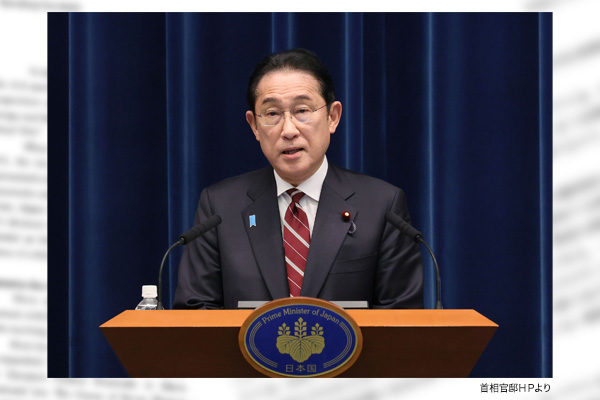Japan’s ruling Liberal Democratic Party has punished 39 of its National Diet members in connection with a Political Funds Control Act violation scandal. While Prime Minister and LDP President Fumio Kishida wants to put an end to the scandal with this punishment, it is not easy for him to repair the rift that has arisen within the party. This is because it was Kishida himself who has invited the “lost four months” since December 1 when the scandal began to be widely reported.
Kishida favoring “three Js”
An LDP official who has served as cabinet minister described Kishida as strongly favoring three Js, namely, Jibun (himself), Ji-habatsu (his own faction) and Jimoto (his hometown of Hiroshima).
Kishida’s lack of interest in other people’s feelings was reflected in the way he announced the punishment, said the former cabinet minister. The punished lawmakers, including former education minister Ryu Shionoya who has served as tentative head of the largest LDP faction formerly led by the late Prime Minister Shinzo Abe, were each given a list of the punished persons and their specific punishments on the evening of April 4, without receiving any direct notification from anyone.
Shionoya, who was advised to leave the LDP in the punishment, has protested the verdict and vowed to consider requesting reexamination. “If Kishida had told me that he would punish me out of need due to the plight of the LDP, I might have said ‘I understood,’” he said. If Kishida had met Shionoya and requested him to leave the party in January when the Tokyo District Public Prosecutor’s Office concluded its investigations into the scandal, the rift would not have deepened so much, according to many LDP politicians. Kishida has thus demonstrated his lack of crisis management capabilities.
In 2005, then Prime Minister Junichiro Koizumi led the punishment of about 60 LDP lawmakers over their opposition to a postal service privatization bill, including former House of Representatives Speaker Tamisuke Watanuki who was expelled from the party. Koizumi dissolved the House for a general election and won a landslide victory by putting up “assassin” candidates against the punished. Regardless of whether his action was right or not, Koizumi positioned the postal service privatization as the center of his reform policy and had a clear goal of realizing it despite resistance.
In contrast, Kishida took a passive stance, insisting that severe punishment must be taken to gain public understanding. Moreover, there was a rift within the party leadership over the contents of the punishment. Kishida had to shuttle between the rooms of the LDP secretary-general and the chairman of the LDP caucus of House of Councilors for coordination over the punishment, exposing his inability to close ranks.
Lack of crisis management capabilities
Over the lost four months, Kishida should have taken the lead in tackling challenges such as constitutional amendment, stable imperial succession, the overseas transfer of defense equipment, and the strengthening of active cyber defense to constantly monitor network communications.
Without demonstrating leadership on these challenges, Kishida has become preoccupied with dealing with the issue of politics and money. Ahead of an LDP presidential election in September, there is little time left for Kishida who is seeking reelection as LDP president. There are growing chorus of voices that an administration like the present one that lacks crisis management capabilities should not be allowed to undertake constitutional amendment and other important challenges. The prime minister should recognize the current reality.
Takashi Arimoto is a Planning Committee member at the Japan Institute for National Fundamentals and publisher of Monthly Magazine SEIRON at the Sankei Shimbun newspaper.


